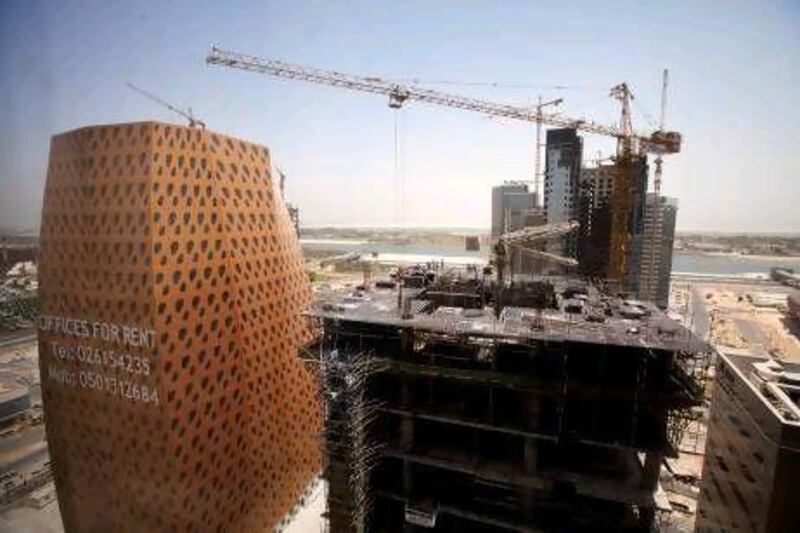Nearly four years after the UAE housing boom first began to deflate, banks still hold about a fifth of their total assets in the property market.
Total bank exposure to the property market stood at Dh232 billion (US$63.16bn), the Central Bank said in a report released yesterday.
The net amount represents 21.5 per cent of banks' deposit base and 21.3 per cent of their total net loans and advances.
The Central Bank examined the impact of the property boom and bust on the banking system in its Financial Stability report.
Like the US savings and loans crisis in the 1980s, the property crash in Japan and Sweden in the 1990s and the more recent western sub-prime crisis, the UAE's property downturn hurt banks' balance sheets. "As we have learnt from other countries' experiences, real estate booms and busts can have far-reaching consequences for a country's banking system, the Central Bank report said.
"The UAE real estate market witnessed a similar pattern, a boom during the years 2005 to 2007 followed by a bust in 2008."
But it said banks had been saved from further pain by the large concentration of development activity in the hands of government-related firms. The developers Nakheel, Limitless and Aldar are among those to receive Government support to help clear debts and start afresh.
"This has enabled the bust cycle to evolve in a controlled environment and limited the systemic spillover," the report said. Signs suggest the property market is starting to stabilise and pick up in some areas. Sales crept up in Dubai during the second quarter compared with the previous quarter, according to data from the property consultancy CBRE.
Banks, too, are reporting an increased appetite in lending to people buying houses and others investing in the property market.
"It's more of a case of steady as she goes now compared to 2007 and 2008," said Craig Plumb, the head of research at Jones Lang LaSalle, a property consultancy, adding last year and this year "have been more stable with the market starting to improve selectively".
The Central Bank data offer a snapshot of the state of investment in the market.
A total of 45.1 per cent of banks' exposure in the property market relates to individuals, with more to UAE nationals than expatriates. Corporate investors, the next largest group, represent 30.8 per cent of lenders' funding.
Much of the investment relates to commercial and residential property companies, in addition to hotels, shopping malls and warehouses. A further 24.1 per cent of banks' exposure is with developers.
The data also examine property investments outside of the banking system. UAE nationals have a larger exposure to property than foreigners, show the data. Nationals have invested Dh37bn in the residential segment and a further Dh30bn in commercial projects. Foreigners have invested a similar amount in residential, Dh37.6bn, but less in commercial at only Dh4.4bn.
However, businesses have the largest exposure, the data show. Companies have Dh132bn of investments with more than half of the amount related to the purchase or construction of residential buildings.
The report said companies in the property industry had been working to boost their health.
Firms have cut their leverage ratio from 212 per cent in 2010 to 158 per cent last year, it said.
"Such deleveraging has come mainly in the form of write-downs of asset values which impacted the sector's profitability, resulting in yet another negative return on equity of minus 6 per cent in 2011," the report said.
"This, however, is a marked improvement from the large losses suffered in 2010."
How quickly developers and banks can return to profits is likely to help determine how fast the UAE can rebound.





